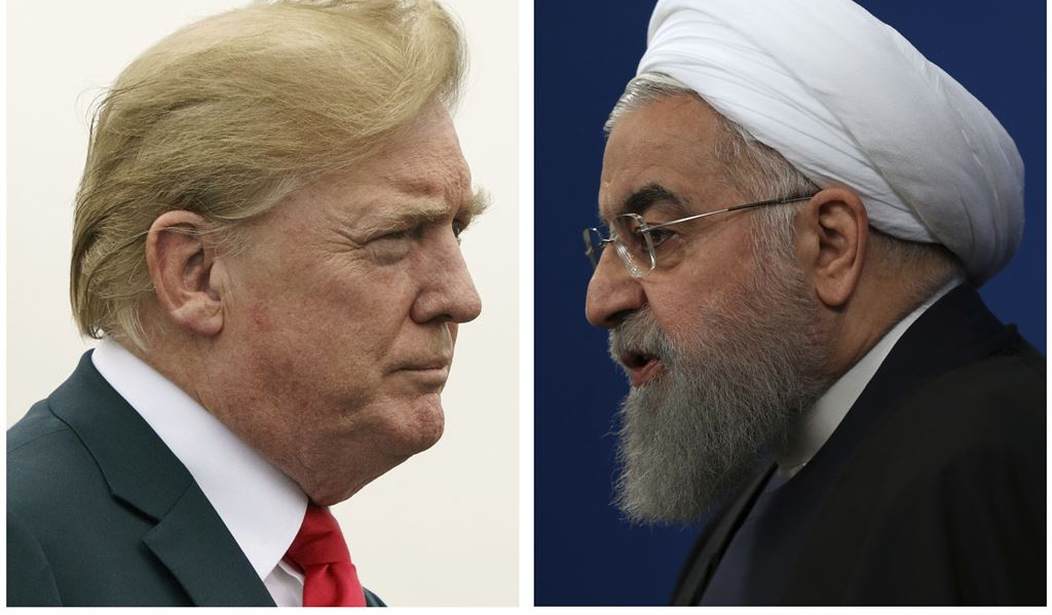Deterrence is the best protection against a future war with Iran. Peace through strength is founded on deterrence. America’s strength has allowed the United States to remain relatively peaceful over the past few decades. Our military is undisputedly the world’s most powerful force. That power prevents our enemies from attacking the homeland.
There are several facets to deterrence. One is the power aspect that comes with having the most powerful military and the wide range of war fighting ability that most other nations do not possess. The second is the actual initiation of conflict with nations like the former Taliban government in Afghanistan. That occasional use of force shows that we have a powerful military and we’re not afraid to use it. Those two things create the deterrence factor.
Deterrence puts fear in the hearts of the leaders of nations who talk a tough game against the U.S. yet fear the consequences of actually attacking America. Deterrence is in the back of the minds of our enemies when they have to map out the consequences of attacking American citizens or U.S. troops.
The most significant example is the peace between the United States and Russia, formerly the Soviet Union. The fact that both the United States and Russia have huge arsenals of nuclear weapons provides the capacity to retaliate if attacked. The nuclear threat is overwhelming because it can completely extinguish a nation if used. This provides a deterrent for states to use a nuclear weapon as a weapon of war, because the retaliation would be crippling and the nation starting the war would not “win” in any sense. Deterrence has been a stable part of U.S. foreign policy in a post WWII world.
Intimidation is another piece of deterrence. It is the functional equivalent of muscle flexing when the U.S. deploys military hardware and aircraft to intimidate an opponent. According to a December 29, 2019 report by NBC News, U.S. Air Force F-15 Strike Eagles “carried out airstrikes against five locations in Iraq and Syria on Sunday, targeting multiple weapons and munitions depots linked to Iran, two U.S. officials said. The weapons and lethal aid stored at the sites had been used in a series of recent attacks on bases of the U.S.-led coalition fighting the Islamic State group in Iraq and Syria, the officials said.” Those strikes show Iran and other nations that the United States will hit munitions storage as a way to deter a future war and show that the United States is not afraid to act when necessary.
Recommended
The same idea of deterrence was used against the Turks in Syria last fall. A Fox News reporter tweeted on October 15, 2019, “U.S. military sends F-15 fighter jets, Apache gunships in ‘show of force’ to disburse Turkish-backed forces who came ‘very close’ to U.S. troops west of Ain Issa, Syria. Turkish-backed fighters ‘violated a standing agreement’ not to threaten American troops: U.S. official.” Shows of force are frequently used to remind countries, even allies, that there are consequences if U.S. troops are harmed.
The initiation of war in Afghanistan is a further deterrent, because it shows that if a line is crossed, the U.S. will go to war. Our forces went into Afghanistan because the government was harboring terrorist organizations who did not think they had anything to lose for the 9-11 attacks, but the Taliban government in Afghanistan payed a high price for that miscalculation. Nations will look at the U.S. wars in Afghanistan and Iraq to show that there are serious consequences for nations who cross certain thresholds.
Most Americans are worn out with the wars in Afghanistan and Iraq, and therefore don’t want to see a new one in Iran. The show of force that culminated in the U.S. taking out Iran’s Qassem Soleimani sent a clear message that America was not interested in regime change or a major war with Iran, but it would not hold back in taking out one of the most feared and renowned terrorists the world has ever known if given the chance. Iran got the message loud and clear.
Targeted strikes such as the Soleimani hit or munitions bombings have proven a deterrent to Iran taking more aggressive actions against the U.S. and may end up actually preserving the peace. Deterrence is the most important tool the American people have today to preserve the peace and avoid another war in the Middle East.

























Join the conversation as a VIP Member